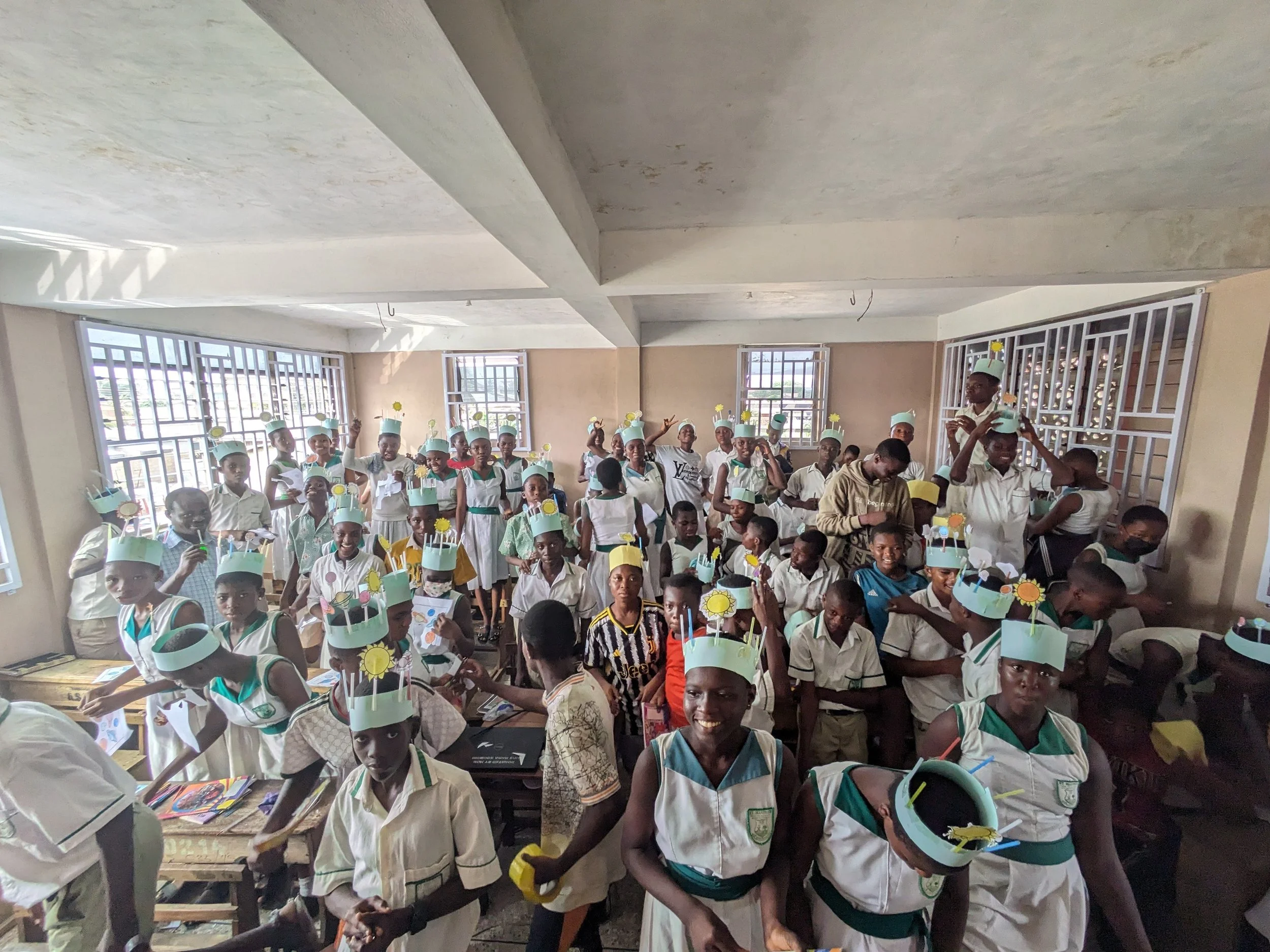Promoting Radio Astronomy in Ghana through School Visits and Astronomy Clubs
Throughout history, astronomy has played a pivotal role in shaping human beliefs, cultures, and societies. The practical applications of the study of stars, planets, and cosmic phenomena has contributed to the development and evolution of humanity. Astronomy enabled humans to track seasons and plan agricultural activities, navigate over land and ocean, and keep track of time.
At a young age, children possess an innate curiosity about the world around them. Even more so when it comes to the vast expanse of space. This innate curiosity of the world around us and outside our atmosphere, when cultivated, serves to inspire the youth, as well as foster an appreciation for our planet's place in the universe. By nurturing a sense of responsibility towards Earth and its ecosystems, children can become advocates for sustainability and conservation, ensuring a brighter future for generations to come.
Astronomy also serves as a gateway to wider world of science, technology, engineering, and mathematics (STEM). By engaging young children in astronomy-related activities and experiments, we introduce them to fundamental scientific principles such as observation, experimentation, and critical thinking. Whether they are learning about the phases of the moon, the planets of our solar system, or the laws of motion, children develop important STEM skills that are essential for success in an increasingly technological world.
In Ghana, several constraints limit the potential of science and technology, including inadequate scientific expertise and culture, lack of effective advocacy, as well as inadequate science teaching and learning in pre-tertiary education.[1]
However, even with those challenges, the Ghana Radio Astronomy Observatory (GRAO) was launched on 24 August 2017. The 32 metre telecommunications dish based in Kuntunse, Ghana, was converted into a radio telescope with the help of South Africa and the UK. This radio telescope is part of the Square Kilometre Array project, which aims to build the world’s largest radio telescope using telescopes in African countries.
Despite the launch of the radio telescope in Ghana, the general knowledge of astronomy among Ghanaian adults and school children is still limited.
PRAGSAC (Promoting Radio Astronomy in Ghana through School Visits and Astronomy Clubs), led by Albert Forson, aims to address this gap by promoting radio astronomy at a pre-tertiary level across schools and clubs in Ghana.
PRAGSAC introduces students to practical astronomy topics and themes using hands-on activities, which is one of the most effective ways to teach young children. PRAGSAC delivers quizzes, organises outreach and excursion opportunties to the GRAO and planeterium, and engages students in talks and discussions.
In the most recent visit and collaboration between Spacehubs Africa and PRAGSAC. Students at St. Martha’s Catholic Basic B School in Kasoa, Ghana were introduced to the solar system, and encouraged to build a solar crown.
During the hands-on activity, Kwaku Sumah, Founder of Spacehubs Africa shared his story with the students, as well as answered general space science and astronomy questions to the attending kids.
PRAGSAC’s mission to promote radio astronomy is a vital one for the development of Ghana’s space ecosystem. The students we teach today, are the drivers of our tomorrow.
Kwaku is the Founder and Managing Director of Spacehubs Africa, a unique space consultancy supporting policymakers, industry players, investors, and start-ups in the African space industry. He has been active in the space industry for more than half a decade, working as a consultant and KOL for European and African space institutions and companies, including the European Commission, European Space Agency, European Investment Bank, and African Union Commission. His academic background includes degrees in Physics and Astronomy (BSc Hon) from the University of British Columbia and Management (MSc) from the Technical University of Munich.
[1] https://mesti.gov.gh/wp-content/uploads/2017/07/Draft-National-STI-Policy-Document-10-July-2017.pdf






